Ever had that moment when you’re just talking about getting new hiking boots, and suddenly your Instagram feed is overrun with rugged outdoor gear, REI promos, and pictures of people scaling cliffs like caffeinated goats? Creepy, right? Welcome to the uncanny valley of hyper-personalized advertising, where your data trail tells a story even your therapist hasn’t heard.
We’re entering an era where artificial intelligence doesn’t just target ads based on your recent search history. Oh no. It pulls from a long-term amalgamation of your digital life – what you read, buy, watch, and whisper to your cat at 2 AM – to serve ads so relevant they border on psychic. And if you’ve played with the newest ChatGPT features or peeked into Google Gemini’s capabilities, you’ve seen this new reality unfold firsthand.
From Banners to Brains: A Quick Trip Down Ad Memory Lane
Remember the good ol’ days of the internet? When banner ads blinked like Vegas strip lights and you could accidentally click on one and win a free iPod (or a virus)? Then came contextual ads: Google AdSense and the like, which served up relevant links based on page content. Revolutionary at the time!
Search engine ads soon joined the party. Type “best hotel in Bali” and presto! You’d be swimming in resort offers faster than you could say “banana pancake trail.”
But these were still reactive systems. They knew what you wanted when you told them. Today’s AI doesn’t wait for your search. It infers. It remembers. And it anticipates.
The New Frontier: When AI Personalization Goes Full Psychic
Let’s talk about the new ChatGPT memory update. This feature allows the AI to remember your preferences, style, favorite topics, and even that time you asked it to write a limerick about robotic room service. Combine that memory with generative capabilities, and you get a system that doesn’t just talk to you – it evolves with you.
Currently, this memory feature is available to paid ChatGPT users, and it goes well beyond storing a few snippets. When you log in, try prompting it with: “Describe me based on all our chats — make it catchy!” The result? A surprisingly insightful portrait of your digital self, shaped by months (or even just a few weeks) of interaction.
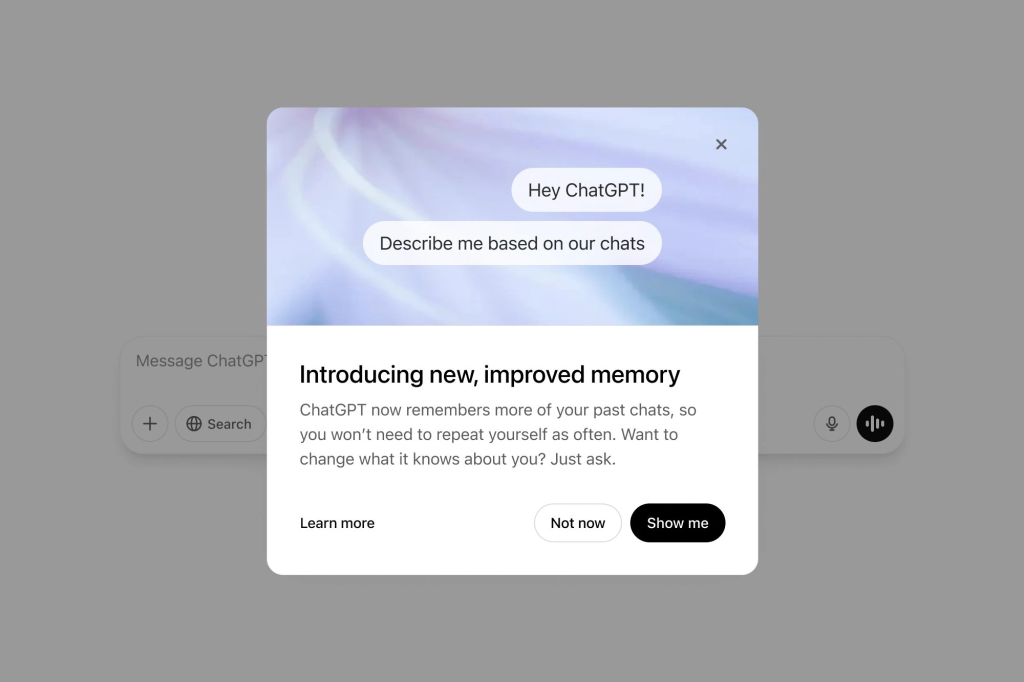
This kind of tech isn’t limited to ChatGPT. Google Gemini is in the race too, analyzing vast pools of user data across Google products to predict your next move better than your significant other.
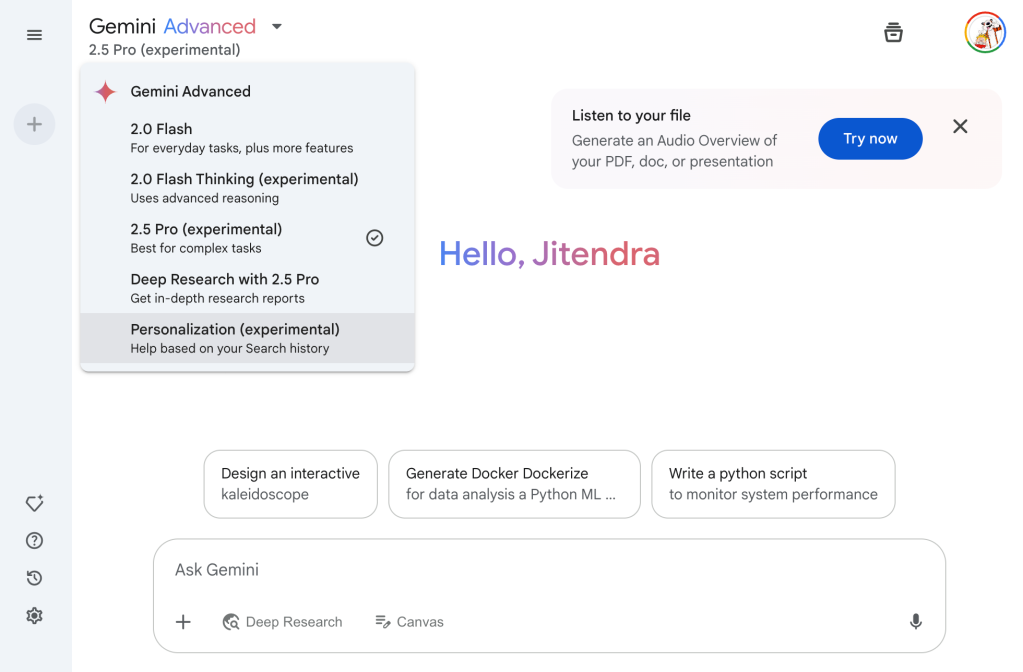
Benefits?
- Ultra-relevant content: Get hotel recommendations based on your travel history and your tendency to prefer rooftop bars.
- Time-saving: No more digging through 50 tabs to find the right service. It comes to you.
- Improved experiences: Think AI concierges that remember your pillow preference across chains.
But…
- Who owns this memory?
- What if the data gets breached?
- Can you ever really “opt out” if everything about you is already part of the training set?
Putting AI Ad Personalization to the Test (With Pictures!)
In the name of science (and curiosity), I decided to push the boundaries. I took three old-school ads – a vintage car magazine spread, a classic travel promo, and a digital banner for an Executive Education course – and gave ChatGPT a deceptively simple prompt:
“Knowing what you know about me (good and bad), recreate this advert (as an image) so it is hyper personalized for me and does everything possible to make me buy this product.”
The results? Stunning. Slightly eerie. Definitely insightful. Each AI-generated ad felt like a mirror of my digital psyche: the fonts, imagery, even the tone of voice adapted to my tastes and quirks. No, they weren’t flawless, but as a proof-of-concept for hyper-targeted marketing, they nailed it.
You can check out the visuals below. (Note: I’ve blurred or masked the original brand names/logos to be respectful of intellectual property. This is purely for educational and illustrative purposes. If you’re repurposing something similar, it might be wise to include a disclaimer or avoid using direct brand elements altogether.)
AI-Reimagined & Personalized Car Ad
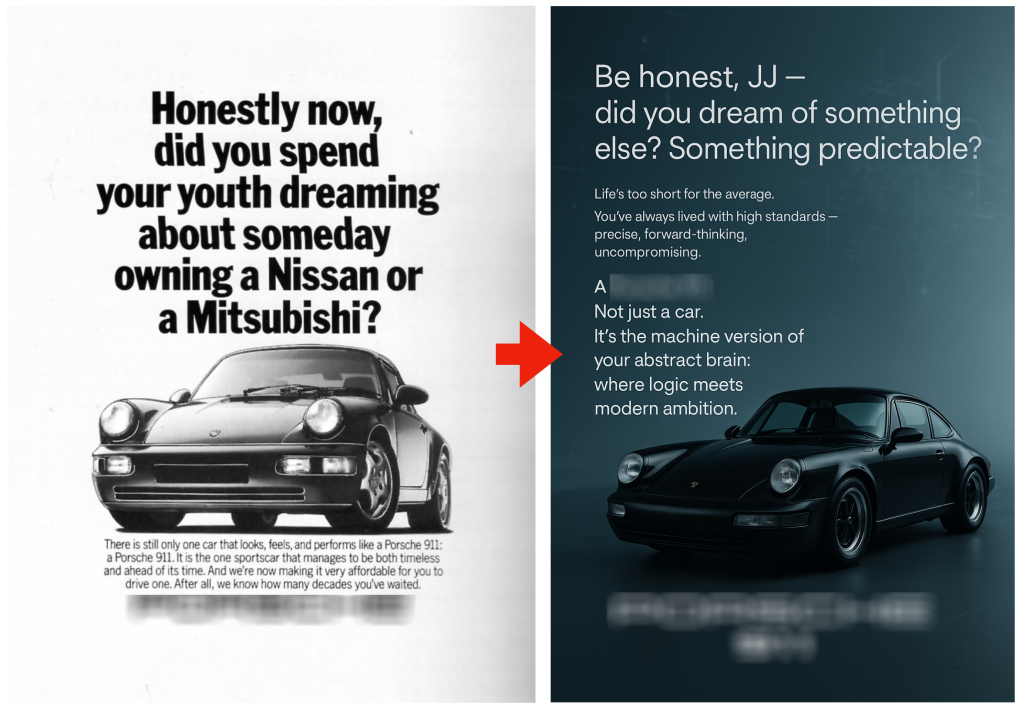
AI-Reimagined & Personalized Travel Ad
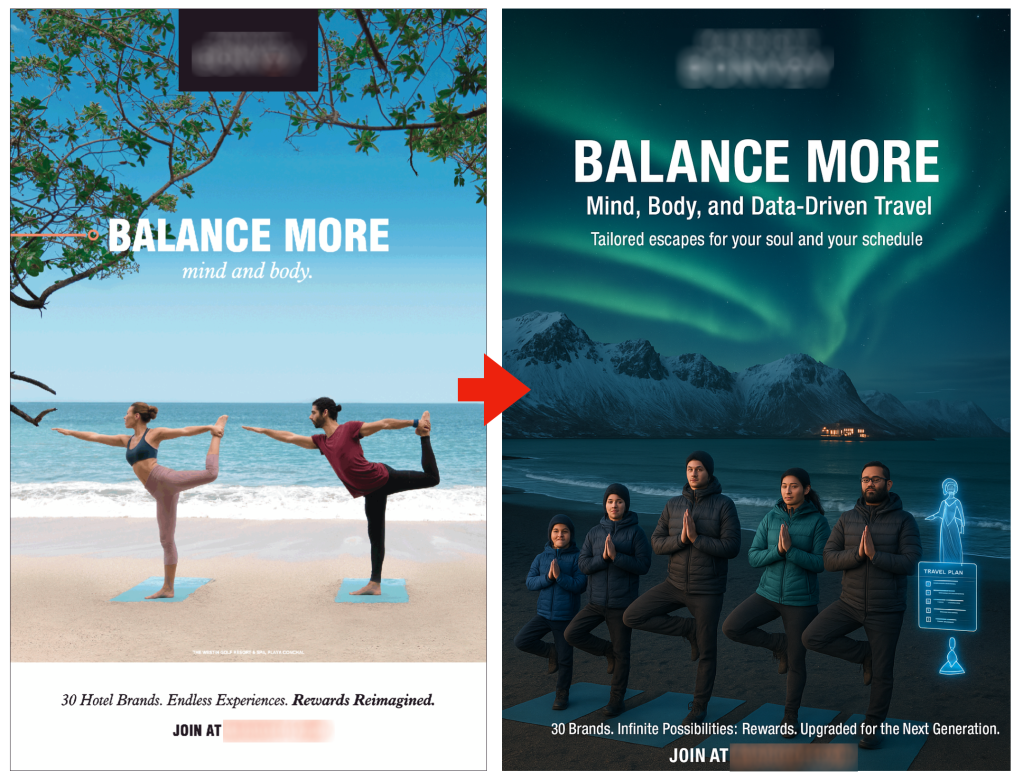
AI-Reimagined & Personalized Exec Ed Course Ad (Digital Banner)
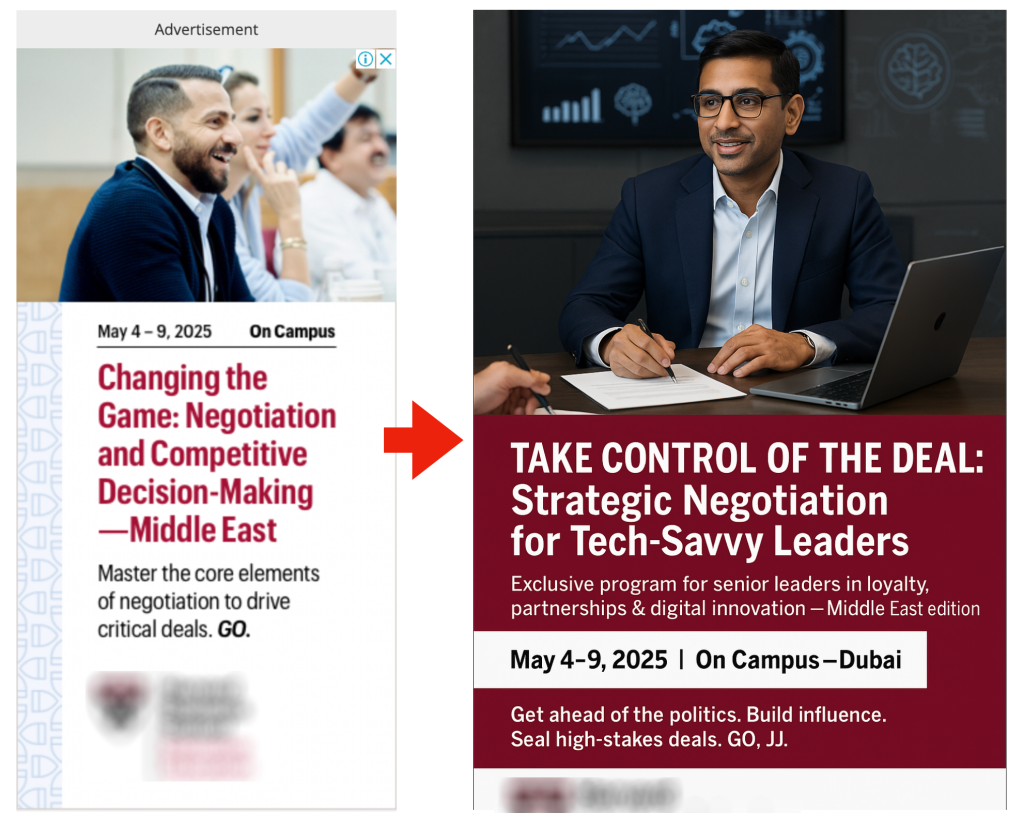
These examples show the real, near-term power of AI personalization in advertising. They also show the risk: when a system knows you well enough to bypass your critical thinking and emotional defenses, where do we draw the ethical line?
Tales from the Algorithmic Twilight Zone
A few months ago, I was researching boutique hotels in Lisbon. I never booked anything. I never even typed it into a browser. I merely mentioned it aloud while cooking. My phone was nearby. The next morning: Lisbon hotel ads, blog posts, and oddly specific tile-pattern Pinterest boards. Coincidence? Maybe. But the timing had “machine learning shenanigans” written all over it.
These little moments—funny, invasive, oddly helpful—are part of the larger debate we can no longer ignore.
The Ethical Debate: Just Because We Can, Should We?
Let’s put it bluntly: Are we okay with AI knowing us better than we know ourselves? Are we happy to exchange our privacy for hyper-targeted convenience? Should the power lie with us, the users, or with the corporations building these AI models?
Marketers say:
- “Look at the engagement! The conversion rates! This is marketing Valhalla!”
Consumers say:
- “I just wanted to Google ‘best travel pillows’ without being followed by neck-support ads for a month.”
Data privacy advocates ask:
- “Where’s the line? Can we draw one before it’s crossed permanently?”
It’s not a tech issue anymore. It’s an ethical one. A societal one. And it’s happening right now.
Closing Thoughts: Balancing Magic and Morality
AI personalization is a marvel. It’s redefining what it means to connect with customers, predict needs, and serve hyper-targeted ads that feel almost magical. But with great algorithmic power comes great responsibility.
As hospitality marketers, tech enthusiasts, and everyday users, we must demand ethical guidelines. Transparent data usage. True opt-out options. Consent that means something.
Let’s not just be the subjects of hyper-personalized marketing—let’s be part of the conversation shaping it.
Your Turn: Have you had a “creepy ad moment” that felt like AI was reading your mind? What are your thoughts on the tradeoff between personalization and privacy? How far is too far?
And if you’re curious, try testing ChatGPT’s memory for yourself. Ask it: “Describe me based on all our chats – make it catchy!” Then imagine how that same knowledge could be used in a billboard ad made just for you.
Share your story in the comments. Because in the age of hyper-targeted ads, your experience isn’t just content – it’s data.
